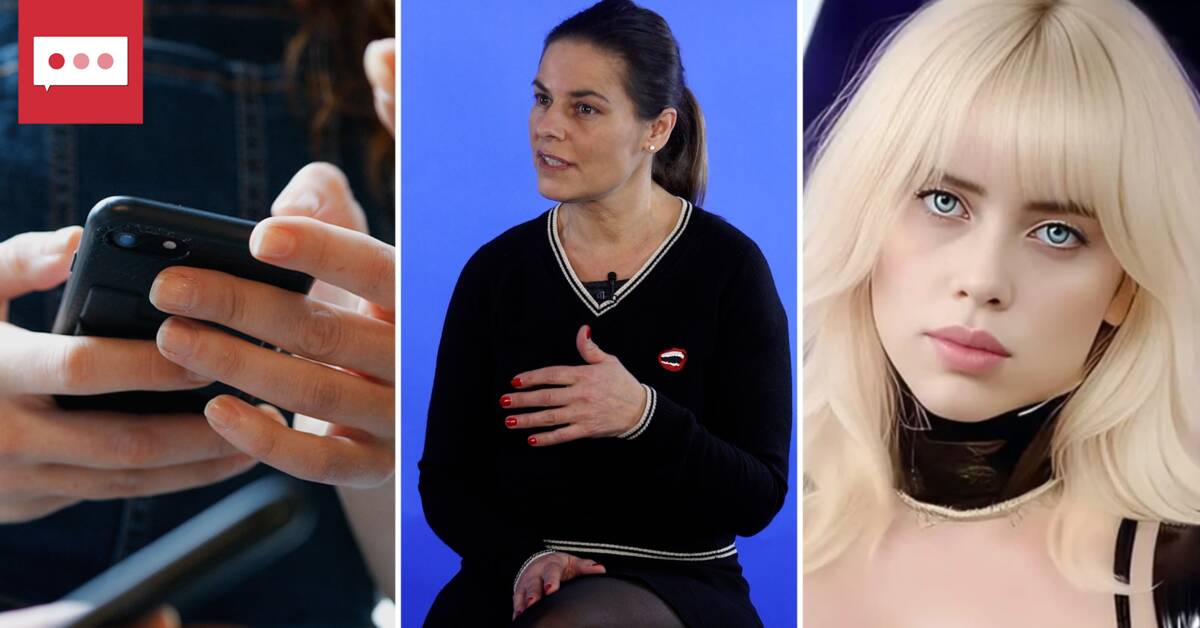“It is not permitted to publish, upload, stream or share: Content that alters or distorts an image of another person to portray or imply sexual suggestion or participation in sexual acts.
"
That's what it says in the social platform Tiktok's rules regarding sexual harassment.
Nevertheless, a moving slideshow consisting of AI-generated deepfake pornography depicting pop phenomenon Billie Eilish was allowed to remain up for four days.
- Whoever enters the content may commit an act that is not legal.
Whoever shows the content, for example Tiktok, can have a liability for participation, says Sanna Wolk, professor of law.
The video of Billie Eilish was featured primarily on the app's "For you" page.
It's the first page the user encounters in the app and is curated using videos from creators you may not follow, but the app's algorithm thinks you'll like.
Photo: TikTok
Tiktok: Be aware that we don't capture everything
The Tiktok account that posted the images had over 76,000 followers and linked to an Instagram account with just over 2,000 followers, which shared the images further and attempted to sell "uncensored images" with "explicit content" for $20 each.
Tiktok does not want to appear for an interview with SVT, but confirms via email that the content violated their community rules and that it was deleted after review.
They also state that Sweden's moderation team has not come across the film and cannot see that it has been distributed to any extent here.
At the same time, they say they are aware that they do not catch all cases of offensive content as quickly as they would like.
Sexualizing filters and apps are criticized
According to many experts, deepfake pornography is a growing problem - but also excessive sexualizing filters that are in many cases used by minors, as Tiktok allows users from 13 years of age.
In recent weeks, AI-generated images and filters from apps such as Lensa or Midjourney have been criticized for having particularly sexualizing effects on women.
Which has been criticized, among other things, by the actress Megan Fox, after the app Lensa created images where she is mostly portrayed naked.
- It doesn't matter if it's celebrities or news.
This distortion of reality is increasing dramatically, says Sanna Wolk.
Watch Sanna Wolk, professor of law, explain what crimes TikTok can commit when criminal content is shared in the video above.

